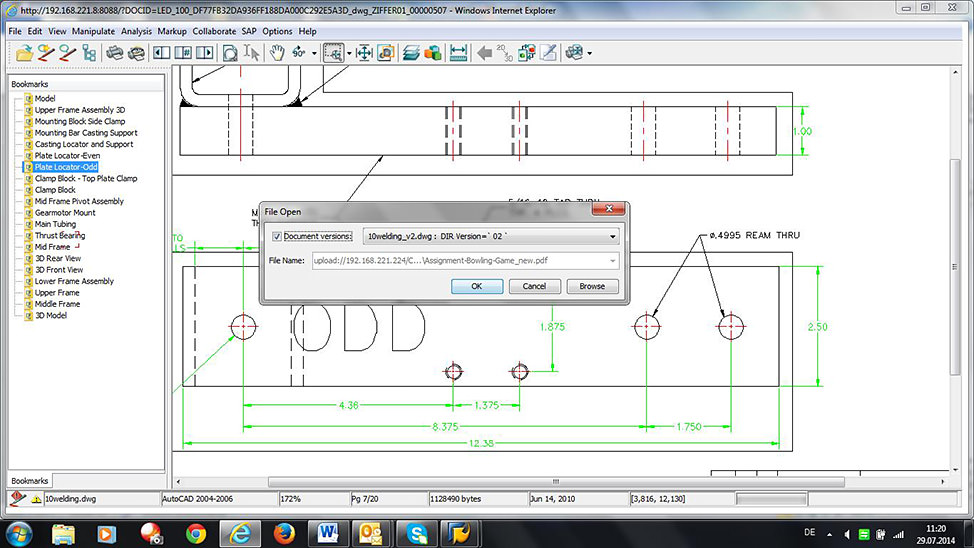Platforms
The following platforms are certified for AutoVue installation and/or hosting:
AutoVue Client/Server Deployment #1
- Windows Server 2012—64-bit
- Windows Server 2008R2—64-bit
- Oracle Linux 5.8 and up (x86), 6.X(x86), and 7.X(x86) (#2) 64-bit (AutoVue running in32-bit mode)
- Red Hat Enterprise Linux 5.8 and up (x86), 6.X(x86), and 7.X(x86) (#2) 64-bit (AutoVue running in32-bit mode)
AutoVue Desktop Deployment
- Windows 8.1, 8, 7, VISTA—64-bit
#1) The installation requires about 400 MB of free space. Additional space will be required by AutoVue for storing other data such as streaming files and markups.
#2) AutoVue is supported on a 64-bit Linux operating systems (OS), but will run in 32-bit mode. All prerequisites libraries should be in 32 bit, with the exception of the X Windows base package (xorg-x11-server-Xorg) along with the Xvf bpackage xorg-x11-server-Xvfb. These should be the same architecture (64-bit) as the OS.
Client Platform
The following platforms are certified for the AutoVue client.
AutoVue Client/Server Deployment
Windows OSes:
Windows Vista—64-bit
Windows 7—64-bit
Windows 8—64-bit
Windows 8.1—64-bit
- Internet Explorer 9
- Internet Explorer10
- Internet Explorer11
- Firefox ESR31
MAC OS X 10.9
- Safari 8.0 #1
- Firefox ESR 31
Solaris 10 (Sparc)
- Firefox ESR31
Java Virtual Machine
- Java SE 7 update 45 and higher -32-bit and 64-bit
- Java SE8 update 11 and higher -32-bit and 64-bit
#1) When launching AutoVue from a Mac client, certain configurations may be required. For more information, refer to Oracle Support Document 1662405.1 (Getting Message" Select a temporary directory" When Printing With AutoVue) which can be found at: https://support.oracle.com/epmos/faces/DocumentDisplay?id=1662405.1
Application Server
The VueServlet has been certified on the following application servers:
AutoVue Client/Server Deployment
- WebLogic 11.x and up
- Tomcat 7.x and up
- Jetty 6.0 and up
AutoVue for Agile PLM Integration Components
AutoVue for Agile PLM integration components can be installed on the following OSes:
Oracle Solaris (SPARC and x64)
Linux (Oracle, Red Ha tEnterprise, SUSE)
Microsoft Windows
HP-UX Itanium
IBM AIX (POWER)



